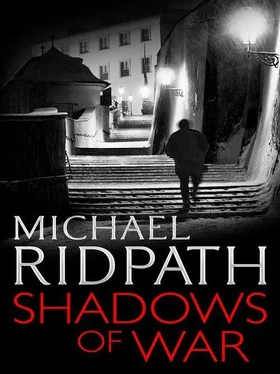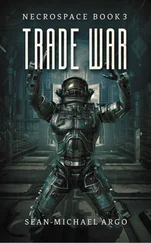‘I wanted to be sure we weren’t being watched.’
Veronica looked up and down the lane. ‘Well, are we?’
‘I don’t think so,’ said Theo. ‘This will only take a moment. If I tell you something, can you remember it without writing it down? It’s extremely important that you repeat it to Conrad as soon as you get back to England.’
‘I can do that,’ said Veronica.
‘Right, then. Listen carefully. The German offensive will start on the tenth of May. That’s Friday. We will invade Holland, Luxembourg and Belgium. And the main thrust will be through the Ardennes at Sedan. Have you got that?’
Veronica repeated it accurately.
‘Good,’ said Theo. ‘Now we should part. I’ll go back up to the Breestraat, and you go down there.’ He pointed down the lane towards the Pieterskerk.
‘Goodbye, Theo,’ said Veronica with a smile. ‘Perhaps we’ll meet again after this stupid war.’
‘That might be a while,’ said Theo as he turned on his heel. He had a lot still to do before dawn on Friday.
House of Commons, Westminster
Alston was sitting on the government benches a couple of rows behind and a little to the right of the Prime Minister, Neville Chamberlain. The House was packed, and although they were well into the second day of the debate on Norway, no one was bored. The tension was growing. History was being made in front of them. But it was not clear to Alston which way history was going.
The Prime Minister was holed below the waterline and was sinking. He had opened the debate the day before with a lacklustre performance. Criticisms had mounted during the day, culminating in a powerful speech in the evening by Leo Amery, who had wheeled out the famous quotation of Oliver Cromwell when dispatching the Rump Parliament: ‘You have sat too long here for any good you have been doing. Depart, I say, and let us have done with you. In the name of God, go!’
Brilliant. Quite brilliant.
Chamberlain had shipped more water the following morning. Herbert Morrison for the Labour Party had indicated that his party would regard the motion as a vote of censure, thus raising the stakes. Chamberlain had mishandled this challenge by saying that he hoped he could rely on his friends to support him. This was an error: he was swiftly losing friends, and his only hope of staying afloat was to receive support from the Parliament as a whole, not just his cronies. Lloyd George responded with a sharp, powerful speech, demanding that the Prime Minister give an example to the country of sacrifice in wartime by sacrificing his own seals of leadership. There was no doubt the old man still had his wits about him.
Chamberlain was sinking fast.
But there was a problem. Somehow, Churchill was wriggling free of blame for the Norwegian fiasco. Speaker after speaker was blaming Chamberlain and exonerating Churchill. The most remarkable was Admiral of the Fleet Sir Roger Keys, Member for North Portsmouth, who, dressed in full uniform with six rows of medals and thick gold braid on his sleeves, extolled his admiration for Churchill and his desire for bold leadership.
When Chamberlain sank, Arthur Oakford was still firmly of the view that his friend Lord Halifax would duck the opportunity to become Prime Minister. Apparently, Halifax’s stomach was giving him severe trouble at the mere thought of it. But Alston was becoming increasingly worried that if that were the case, Churchill might emerge as his successor.
The First Lord of the Admiralty rose at ten o’clock that evening. Churchill was in an impossible position, somehow having to declare loyal support for Chamberlain while still laying the blame for the Norwegian disaster on the Prime Minister rather than himself. But he did it. Churchill was going to fight the war and win it, and he brought the House with him.
When it came time for the division, Alston knew what he had to do. He was one of forty-one Conservative MPs to vote against his party. In the end, the government won the debate, but with a majority of only eighty-one. Given that the Conservatives had a nominal majority of over two hundred, it was a disaster.
As Alston went to bed that night, it seemed certain that what he had been praying for for months was finally about to happen: Chamberlain was on his way out. Yet suddenly, inexplicably, it looked likely that he would be replaced as Prime Minister by the biggest warmonger of them all.
Winston Churchill.
Mayfair, London, 9 May
Veronica went straight from Heston Airport to the small flat in Dunraven Street she shared with a friend, and telephoned Conrad on the Suffolk number he had given her. It took a long time for the captain she spoke to to get hold of him, but eventually she heard his voice.
‘I’m back,’ she said.
‘Did you see Theo?’ Conrad asked.
‘I did.’
‘What did he say?’
Veronica passed on Theo’s message verbatim.
‘But the tenth is tomorrow!’ Conrad said.
‘I know. Can you get hold of a general or something?’
There was a pause on the line. ‘You’ll have to do it, Veronica. Have you ever met Van?’
‘You mean Sir Robert Vansittart? Once, at your parents’ house in Kensington Square. I’m not sure he would remember me.’
‘Remind him, Veronica. I know you can do that. Go immediately to the Foreign Office and demand to see him. Say you have a message from Holland about the invasion. Be persistent. You know how to be persistent, don’t you?’
‘Of course I do, darling. I’ll make him listen to me, I promise.’
‘Once you have spoken to Van, ring Major McCaigue on this telephone number and tell him exactly what Theo told you.’ Conrad read out the number. If Van didn’t believe Veronica, it was likely that McCaigue would.
‘Do you think we are too late?’ said Veronica.
‘I don’t know,’ said Conrad. ‘But we have to try. Oh, and Veronica?’
‘Yes?’
‘Well done.’
Veronica hung up, and ran downstairs. She found a taxi in Park Lane. ‘Whitehall, please.’
Kensington, London
After the excitement of the previous two days, Alston felt deflated as he made his way back to his flat in Ennismore Gardens. Arthur Oakford had just confirmed what he had feared; Halifax had turned down the premiership. Didn’t have the stomach for it, quite literally. Which meant Churchill. There seemed to be a consensus in the House that the next government should include the Labour Party, and the Labour leaders preferred Churchill to Chamberlain. Despite the disaster in Norway, the House of Commons was suddenly well disposed towards the warmonger-in-chief. Churchill was going to become Prime Minister the next day. This was not how it was supposed to be.
He was surprised when he opened the door to his flat to see a light was on. It was past eleven o’clock. It couldn’t possibly be Dorothy down from Scotland to surprise him, could it?
‘Hello?’
‘Henry!’ He smiled as Constance rushed in from the sitting room, flung her arms around her neck and kissed him.
‘What are you doing here?’ he asked her.
‘I told my mother I was staying with a friend in town. I wanted to be with you tonight.’ She broke away from him. ‘What’s wrong? Did Halifax become Prime Minister after all?’
‘No,’ said Alston. ‘It’s worse than that. It’s going to be Churchill.’
‘But Churchill’s responsible for the mess we’re in!’
‘I know. But suddenly everyone loves him.’
‘So no Lloyd George?’
‘No,’ said Alston, pouring himself a Scotch with barely a splash of soda. He sat down on the sofa and Constance snuggled up close to him.
‘That’s awful. Will Churchill make you a minister?’
Читать дальше












